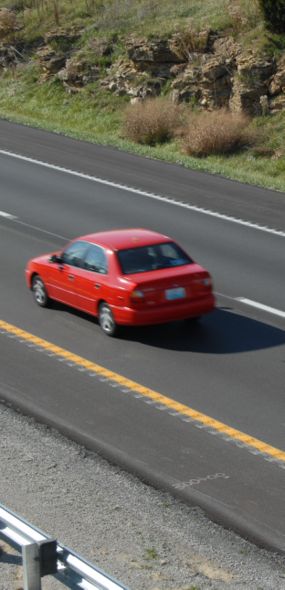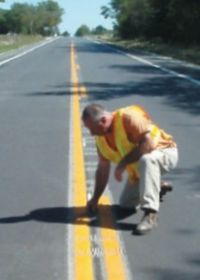626.3 Construction Inspection Guidelines for Sec 626: Difference between revisions
mNo edit summary |
m Per TP, updated Major Highway System map |
||
| (4 intermediate revisions by 2 users not shown) | |||
| Line 3: | Line 3: | ||
This article provides additional requirements for rumble strips that need to be implemented on all jobs, regardless if the requirements are specifically covered in the specifications in effect at the time of award of a contract. | This article provides additional requirements for rumble strips that need to be implemented on all jobs, regardless if the requirements are specifically covered in the specifications in effect at the time of award of a contract. | ||
'''Construction Requirements (for [http://www.modot.org/business/standards_and_specs/SpecbookEPG.pdf#page=9 Sec 626.2])''' Rumble strips and striping need to be installed according to [ | '''Construction Requirements (for [http://www.modot.org/business/standards_and_specs/SpecbookEPG.pdf#page=9 Sec 626.2])''' Rumble strips and striping need to be installed according to [https://www.modot.org/sites/default/files/documents/62600_0.pdf Standard Plan 626.00] and the guidelines below. | ||
The lateral deviation of rumble strips are not to exceed 1 inch in 100 ft. Milled rumbles are to be clean and dry before the installation of permanent pavement marking. | The lateral deviation of rumble strips are not to exceed 1 inch in 100 ft. Milled rumbles are to be clean and dry before the installation of permanent pavement marking. | ||
| Line 15: | Line 15: | ||
* Posted speed limit of 50 mph or greater. | * Posted speed limit of 50 mph or greater. | ||
* The shoulder should be new asphalt with a minimum thickness of 1 in. on top of | * The shoulder should be new asphalt with a minimum thickness of 1 in. on top of an existing asphalt base. | ||
Shoulder rumbles strips should not be installed if any of the following conditions exist: | Shoulder rumbles strips should not be installed if any of the following conditions exist: | ||
| Line 23: | Line 23: | ||
*Shoulder thickness is less than 3 ¾ in. | *Shoulder thickness is less than 3 ¾ in. | ||
The edge marking strategies on [ | The edge marking strategies on [[media:144 Major Highway System 2022.pdf|major roads]] shall be: | ||
1. Edgeline rumble strips - where shoulder thickness allows. | 1. Edgeline rumble strips - where shoulder thickness allows. | ||
Latest revision as of 07:16, 3 June 2022


This article provides additional requirements for rumble strips that need to be implemented on all jobs, regardless if the requirements are specifically covered in the specifications in effect at the time of award of a contract.
Construction Requirements (for Sec 626.2) Rumble strips and striping need to be installed according to Standard Plan 626.00 and the guidelines below.
The lateral deviation of rumble strips are not to exceed 1 inch in 100 ft. Milled rumbles are to be clean and dry before the installation of permanent pavement marking.
Rumble Strip Guidelines in Existing Roadways
Edgeline rumble strips are an important part of the MoDOT pavement marking system. With the end of the RPM installation program they are the primary method for providing wet night retroreflectivity of the pavement markings.
There are, however, a number of concerns regarding the installation of edgeline rumble strips. To address these the following guidelines are to be used when implementing edgeline rumble strips in existing pavements.
- Posted speed limit of 50 mph or greater.
- The shoulder should be new asphalt with a minimum thickness of 1 in. on top of an existing asphalt base.
Shoulder rumbles strips should not be installed if any of the following conditions exist:
- The asphalt is old and appears vulnerable to raveling if the grooves are cut.
- Shoulder thickness is less than 3 ¾ in.
The edge marking strategies on major roads shall be:
1. Edgeline rumble strips - where shoulder thickness allows.
2. Separated edgelines and shoulder rumbles – to be used where there is sufficient shoulder thickness to allow the milling of the full rumble but there are noise concerns. The rumble is milled in the standard location and the edgeline is striped on the edge of the travelway.
3. Edgelines only - where there isn’t sufficient shoulder thickness to allow the milling of rumbles, edgelines placed at the edge of the travelway.
4. An optional method of providing rumble strips is to provide a solid 2 ft. wide strip in the shoulder, 3 ¾ in. thick, where the rumbles can be milled.
The location and pattern of full rumble strips shall be in accordance with Standard Plan 626.00.